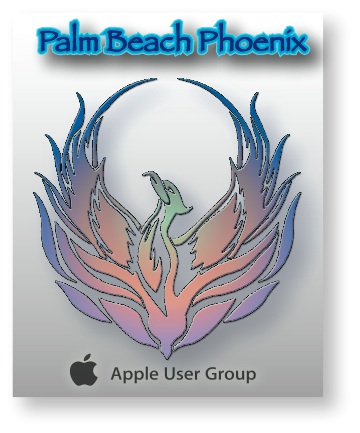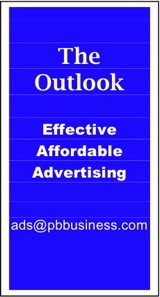Mac Corner: Please don't steal the music
By Larry Grinnell, Palm Beach Phoenix Apple Users Group
 Now that online music has all but done away with brick-and-mortar music stores (remember Tower Records, Virgin Megastore, Peaches, etc.?), you can’t just jump in your car and go to your neighborhood record store to check out the latest releases, nor can you easily pick up a CD case (in that same mythical store) and read the notes on the back (more about notes later), how do you legally get your music today, or for that matter, how do you find new music (that you like) today?
Now that online music has all but done away with brick-and-mortar music stores (remember Tower Records, Virgin Megastore, Peaches, etc.?), you can’t just jump in your car and go to your neighborhood record store to check out the latest releases, nor can you easily pick up a CD case (in that same mythical store) and read the notes on the back (more about notes later), how do you legally get your music today, or for that matter, how do you find new music (that you like) today?
I’ll just gloss over the other distribution means, including bit torrents, newsgroups, and some of those interesting overseas sites, because getting music from them is just plain wrong. The artists deserve whatever pittance the record companies give them.
The record companies, hate them though you might, spend a fair amount of cash on promoting their popular artists, handle the distribution of physical disks to the few storefronts and to the online sources, and negotiate with folks like Apple’s iTunes Store to get their product in those stores.
You may not like it, and may agree that the record companies are trying to perpetuate a 100+ year business model that dictates that whenever there is a new way to distribute music (vinyl records, CDs, DVDs, online, etc.), you need to pay full price each time. Additionally, the record companies don’t seem to understand that adding Digital Rights Management (DRM), or copy protection, to their products, only enflames consumers, who see this as a challenge and actively seek alternative distribution methods — you know, the illegal kind.
Consumers have grown tired of buying and rebuying the same music over and over again, improved quality notwithstanding, or because of DRM, can’t play their music on devices they already own, and many have gone over to the dark side by obtaining their music from, well, less-than-legal sources.
All this goes on in spite of common knowledge that if you can give the customer their music in the formats they want, and make it easy to get, the vast majority will pay for their music.
Who does this hurt? For one, it hurts the artists who created the content. Next, the record companies. Again, hate them though you might, without steady revenue, they’re not going to be able to afford to find and record new artists, and get the word out. As it is, CBS/Sony, owners of the Columbia label, closed their jazz department last year and are concentrating on reissues.
Retailers are also hurt, because their inventories wind up being the same old stuff they had last week, last month, and last year, because the big labels aren’t putting out nearly as many new recordings, especially by new artists. Bottom line, you are stealing. Is that how you were brought up?
You might say that no one needs the big labels anymore—that artists can distribute their own content, and can promote themselves online through social websites (Facebook, MySpace, etc.). I think the reality is that for all the groups who have tried this approach, only a very tiny number can support themselves financially.
So, you might ask yourselves, if the record stores are all gone, and I shouldn’t get my music from illegal sources, what’s left? The good news is that there are a huge number of sources of legal, downloadable music, without copy protection, online.
Let’s start with the granddaddy of them all, the iTunes Store. While they were active participants in applying anti-copying technology, it wasn’t their choice. The record companies demanded that their content be protected from copying, the side effect being that the music you paid for couldn’t be played on any music-playing device you owned (just ask the iTunes Store customer who had a Microsoft Zune).
The good news is that cooler heads have finally prevailed, and DRM-free music is now the norm, rather than the exception. Their library is breathtaking, with maybe the exception of some of the more obscure jazz artists, and much classical music. The integration between the iTunes Store and your Mac is equally breathtaking. It’s as if the iTunes Store was on your computer. It’s just so easy to locate music, video, and other content.
Others have now stepped into this same arena. Amazon.com was the first big operator to offer a complete library of non-DRM’ed music. At the same time, Amazon dominated (and still dominates) the marketplace for selling physical media online. In many cases the same music Amazon carried without DRM was also available on the iTunes Store with DRM, as the record companies, in their infinite wisdom (?) wanted to somehow punish Apple for being dominant in this marketplace. That no one sued the record companies for anti-competitive practices remains a big mystery to me.
Mega-book retailer Borders has a huge web presence, letting you download individual tunes, online albums, or order conventional CDs. Barnes & Noble hasn’t gotten it yet (maybe too wrapped up in launching their new eBook reader), and still doesn’t offer music downloads.
If your musical tastes, like mine, fall outside the mainstream pop stuff, look to services like eMusic.com, for obscure jazz, classical, world music, or what have you. There are lots of indie bands there, too. CDBaby.com is mostly a media distribution company, but does offer downloads of a lot of their content.
There are many, many more offerings in the marketplace, which make it easy to find, pay for, and download the music you want to hear. Don’t steal. Everyone benefits.
EDITOR'S NOTE: Readers are welcome to comment on this or any Mac Corner columns by visiting the Palm Beach Phoenix blog as well as by writing the editor of Palm Beach Business.com.
Mac Corner runs every Wednesday only in Palm Beach Business.com. Click to read the previous column.
About Larry Grinnell: Larry has been working with Macintosh and Windows PCs for over 25 years and worked as a senior technical writer and IT support professional for a major midwest-based consumer electronics and telecommunications equipment manufacturer here in South Florida. His musings on a wide variety of topics from computers to jazz guitar to strange foreign cars from the 1950s can be viewed at the MyMac.com website. Click here to reach him by email.
 Writers of this column are members of the Palm Beach Phoenix Apple User Group, a nonprofit organization for Apple Computing Device Users, recognized by Apple Inc., with the purpose of providing educational training and coaching to its members (students, professionals and seniors alike) in a cordial social environment. The club meets the second Saturday of each month from 1 to 4 p.m. at the Fire Station #2, 4301 Dixie Highway in West Palm Beach (just two block south of Southern Boulevard). Click here to visit their website. Click here to reach them by email.
Writers of this column are members of the Palm Beach Phoenix Apple User Group, a nonprofit organization for Apple Computing Device Users, recognized by Apple Inc., with the purpose of providing educational training and coaching to its members (students, professionals and seniors alike) in a cordial social environment. The club meets the second Saturday of each month from 1 to 4 p.m. at the Fire Station #2, 4301 Dixie Highway in West Palm Beach (just two block south of Southern Boulevard). Click here to visit their website. Click here to reach them by email.



